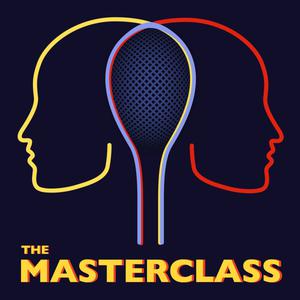
The Masterclass Podcast
Louisa Lim
Learning Through Listening: Lessons in audio from some of the best audio journalists in the world, hosted by Louisa Lim from the Centre for Advancing Journalism at the University of Melbourne.
- 25 minutes 45 secondsS3E12: S03E12: Wing Kuang on Starting a Career in Journalism
“What makes you different from your peers who also want to get a job in journalism?
ABC audio producer and digital reporter Wing Kuang is an expert at turning a disadvantage into an asset. Having first come to Australia as an international student, she encountered a lot of barriers to finding a job as a journalist.
She says that community radio provided important opportunities to develop her skills and build a portfolio, and that it was ultimately her social media presence that led to her first job.
“Tweeting had become my only way to make myself known.”
WORK MENTIONED
https://allthebestradio.com/featured/500-retrospective-vanishing-voices/
https://www.abc.net.au/listen/programs/days-like-these/wing-vs-the-machine/101916326
See omnystudio.com/listener for privacy information.
13 May 2024, 8:14 pm - 24 minutes 42 secondsS3E11: S03E11: Kirsti Melville on Working with Sound
“The minute I walk into that space, I turn my audio ears on.”
ABC broadcaster Kirsti Melville is an award-winning radio documentary maker, who always starts planning for an audio feature by thinking about sound. Melville describes how she triages the audio in any recording environment, and how she works with sound to create immersive and impactful storytelling.
"I often talk about it in quite filmic terms. Think about it in terms of small close-up sound and broader, wider sound that creates a scene."
WORK MENTIONED
https://www.abc.net.au/listen/programs/earshot/earshot/102676508
https://www.abc.net.au/listen/programs/earshot/the-ghosts-of-wittenoom---part-one/10635386
https://www.abc.net.au/listen/programs/earshot/the-ghosts-of-wittenoom-part-2/10747390
See omnystudio.com/listener for privacy information.
6 May 2024, 3:29 am - 25 minutes 44 secondsS3E10: S03E10: Tamara Oudyn on Voice in Audio Journalism
“Your voice is such a personal quality…It’s like your own aural fingerprint.”
As an ABC voice coach and journalist, Tamara Oudyn is shaping the diverse voices of the national broadcaster. Here she describes the lessons she teaches cadets, including the role of the 3ps - pitch, pace and pausing - in broadcasting.
Her emphasis is on training young journalists to sound like themselves on air.
“Authority comes from being comfortable in front of a microphone and knowing what you are on about.”
WORK MENTIONED
See omnystudio.com/listener for privacy information.
29 April 2024, 11:37 pm - 25 minutes 47 secondsS3E9: S0309: Jo Lauder on Audio Storytelling
"The thing that I love about audio is that...it's really intimate."
ABC journalist Jo Lauder says audio can be really effective in transporting the listener to a particular time and place. She explains how she goes about planning different types of audio pieces, whether for Triple J's Hack or long-form narrative podcasts like Saving the Franklin. She says it is crucial to engage the listener right from the start.
"You grab them with the curiosity. You just have to really hook someone in so they want to find out what's going on."
WORK MENTIONED
https://www.abc.net.au/listen/programs/dig/series-3-saving-the-franklin/102414460
https://soundcloud.com/triple-j-hack/jo-lauder-goes-on-a-space-walk-with-earthlight
https://www.abc.net.au/triplej/programs/hack/hck-2024-01-04/103234860
See omnystudio.com/listener for privacy information.
22 April 2024, 6:00 am - 22 minutes 57 secondsS3E8: S03E08: Daniel Browning on Objectivity in Journalism
“Who measures objectivity? Who judges objectivity?”
Objectivity is traditionally seen as a cardinal tenet of journalism, but Daniel Browning's long experience in Australian newsrooms has left him questioning whether objectivity is possible, or even beneficial.
The Bundjalung and Kullili man, who leads the ABC's Indigenous Radio unit, says First Nations communities have been failed by the Australian media.
He champions the idea of subjective journalism, believing that being 'close to the subject’ can be an asset.
“The lie of objectivity is that we assume we have it.”
WORK MENTIONED
https://www.youtube.com/watch?v=nsySGx7ReWU
https://magabala.com.au/products/close-to-the-subject
See omnystudio.com/listener for privacy information.
15 April 2024, 5:00 am - 25 minutes 42 secondsS3E7: S03E07: Konrad Marshall on the Craft of Feature Writing
“Always get the name of the dog, the brand of the beer, and the title of the song that was playing as the car crashed off the road.”
This is one writing commandment that the award-winning writer for Good Weekend Konrad Marshall keeps top of mind, as told to him by Pulitzer Prize-winner Tom French. For Marshall, that attention to detail is one trademark that helps set his work apart.
As a feature writer, he sees his main job as engaging readers in a captivating story.
“I’m just trying to get your attention for thirty-five minutes on a Saturday morning by reading something that you really enjoy.”
WORK MENTIONED
https://www.smh.com.au/interactive/2016/the-noongar-warriors/
See omnystudio.com/listener for privacy information.
8 April 2024, 10:18 am - 26 minutes 16 secondsS3E6: S03E06: Stephanie Convery on Feature Stories
“Focus on the intimate and particular.”
When it comes to feature writing, Stephanie Convery says it is often the small details that count. Her work with Guardian Australia involves shining a light on inequality, and frequently focuses on people’s personal circumstances. She likens features to creative writing in the need to draw on literary devices to ‘show’ rather than ‘tell’ the reader why a story matters.
She says the key to starting any feature story is being curious.
“When you go to write a feature you don’t necessarily know all the answers to the questions that you’ve asked. Part of finding the answers is writing.”
WORK MENTIONED
See omnystudio.com/listener for privacy information.
25 March 2024, 5:52 am - 24 minutes 2 secondsS3E5: S03E05: Laura Murphy-Oates on Interviewing
“You can’t go in with no idea of what you might hope to get out of it, but you have to be open to what happens in the interview.”
As former host of Guardian Australia’s Full Story podcast, Laura Murphy-Oates speaks to people for a living. Here she outlines her rules for interviewing, including the pre-interview research process and how to structure questions. She describes the importance of an ethical approach, particularly when interviewing marginalised communities. The interview's purpose, she says, should always be top of mind.
“Think about what the audience would want from the interview.”
WORK MENTIONED
See omnystudio.com/listener for privacy information.
18 March 2024, 3:27 am - 24 minutes 40 secondsS3E4: S03E04: Saffron Howden on Writing News Stories
"If you haven't grabbed the readers' attention within the first 10-12 words, you lose them."
Saffron Howden's job is training journalists how to write news for Australian Community Media. She sees news journalists as storytellers dealing in facts, who need to always be thinking about their audience. In this episode, she offers tips on the craft of writing a strong news story.
"Focus on...the thing people are going to care about. And keep it simple."
WORK MENTIONED:
See omnystudio.com/listener for privacy information.
11 March 2024, 3:53 am - 24 minutes 4 secondsS3E3: S03E03: Nick McKenzie on Ethics and Defamation
"It's about fairness in the search for the truth, and fairness in publishing our stories."
The Age's Nick McKenzie has put fairness at the centre of his journalistic identity. It's led him to break some of the nation's biggest stories, winning him 16 Walkleys, but also has meant he's been sued for defamation on multiple occasions. In this episode, he lays out the steps he takes to ensure his reporting is fair and ethical.
"Journalism is a profession of infinite possibility - you just need to apply yourself and be determined and be ethical and be thorough and be guided by the public interest."
WORK MENTIONED:
https://9now.nine.com.au/60-minutes/the-faceless-man-60-minutes/27c925bd-757d-47c9-ba88-1b2309b72936
See omnystudio.com/listener for privacy information.
4 March 2024, 6:09 am - 25 minutes 14 secondsS3E2: S03E02: Finding Interviewees with Julia Bergin
"Every story that you do, you need to talk to people."
Julia Bergin's journalistic career has taken her as far afield as Japan and the Northern Territory, meaning she's had to work at building up her contact book time and time again. In this episode, she talks about all that goes into finding the right interviewees for a story.
"It's broadening this remit of interviewing from just a Q&A to the groundwork that happens before. And that's not just about writing up questions. That's developing a rapport with your interview subject."
Articles mentioned:
https://www.crikey.com.au/2023/04/24/alice-springs-traditional-owners-launch-patrol/
https://www.crikey.com.au/2023/06/13/dingoes-research-dna
See omnystudio.com/listener for privacy information.
26 February 2024, 5:00 am - More Episodes? Get the App
Your feedback is valuable to us. Should you encounter any bugs, glitches, lack of functionality or other problems, please email us on [email protected] or join Moon.FM Telegram Group where you can talk directly to the dev team who are happy to answer any queries.
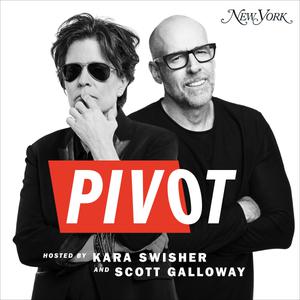 Pivot
Pivot
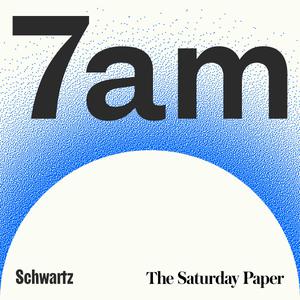 7am
7am
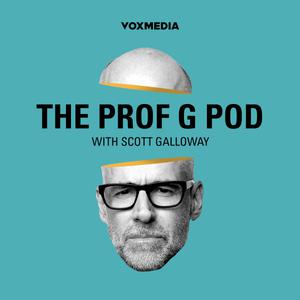 The Prof G Pod with Scott Galloway
The Prof G Pod with Scott Galloway
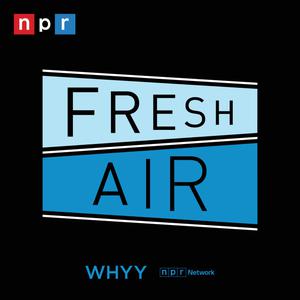 Fresh Air
Fresh Air
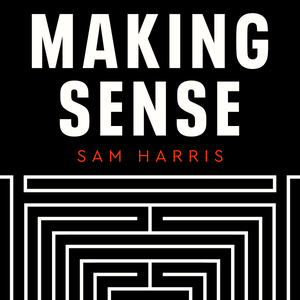 Making Sense with Sam Harris
Making Sense with Sam Harris